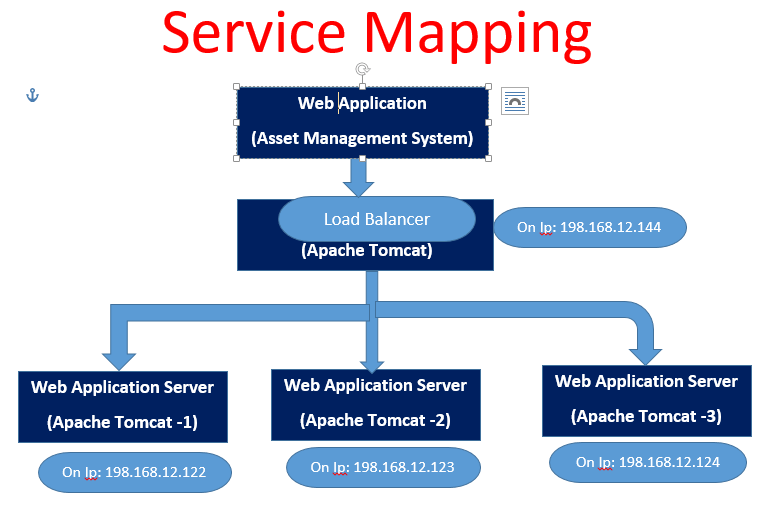Building Voice Assistants Made Easy: OpenAI's 2024 Announcements

Table of Contents
Simplified Development with OpenAI's New APIs
OpenAI's 2024 releases significantly lower the barrier to entry for building voice assistants. The core improvements lie in their streamlined APIs, offering unprecedented ease of use and powerful capabilities.
Streamlined Natural Language Processing (NLP)
OpenAI's latest APIs offer vastly improved NLP capabilities, forming the backbone of intelligent voice assistant development. This translates to voice assistants that accurately understand and respond to user requests, even complex or nuanced ones.
- Enhanced speech-to-text conversion with reduced latency: Users experience faster and more accurate transcription of their spoken words, leading to more responsive interactions. This improved speed is crucial for a seamless user experience.
- Improved natural language understanding, handling complex queries and nuanced requests: The APIs now better decipher the intent behind user requests, even those containing ambiguity or colloquialisms. This allows for more accurate responses and a more natural conversation flow.
- Support for multiple languages and dialects: Developers can create voice assistants catering to a global audience, expanding the potential reach and impact of their applications. This multilingual support is a critical aspect of building voice assistants for diverse markets.
Pre-trained Models for Rapid Prototyping
One of the most significant advancements is the availability of pre-trained models. These models provide a robust foundation, drastically reducing the need for extensive custom training data and accelerating the development process.
- Reduced development time and cost: Utilizing pre-trained models significantly shortens the development cycle, allowing for faster time to market and reduced development expenses.
- Access to cutting-edge NLP models without extensive machine learning expertise: Developers without deep machine learning experience can now leverage sophisticated NLP capabilities, democratizing the creation of voice assistants.
- Easy integration with existing platforms and frameworks: Seamless integration with popular development environments and platforms ensures compatibility and simplifies deployment.
Enhanced Voice Synthesis for a More Natural Experience
Beyond understanding, the ability to speak naturally is paramount for a successful voice assistant. OpenAI's advancements in this area are equally impressive.
Lifelike Voice Generation
OpenAI's text-to-speech (TTS) technology has made substantial progress, resulting in more natural-sounding and expressive voices. This improvement significantly enhances the user experience, moving away from the robotic quality often associated with older systems.
- Reduced robotic quality, creating more engaging interactions: The new voices sound more human, leading to more natural and enjoyable conversations.
- Customization options to match brand voice and tone: Developers can tailor the voice to reflect their brand identity, ensuring consistency and recognition.
- Support for various accents and emotional expression: Adding accents and emotional nuances enhances the expressiveness and personality of the voice assistant, creating a richer user experience.
Contextual Awareness for Improved Dialogue
The new APIs are context-aware, leading to a more natural and engaging conversational flow. The voice assistant remembers previous interactions, allowing for more coherent and personalized responses.
- More natural flow in conversations: The assistant doesn't forget past interactions, resulting in a more fluid and realistic dialogue.
- Improved understanding of user intent across multiple turns of dialogue: The context helps clarify ambiguous requests or follow-up questions, leading to more accurate responses.
- Enhanced personalization based on user history: The voice assistant can tailor its responses and suggestions based on past interactions, creating a more personalized and helpful experience.
Improved Security and Privacy Features
OpenAI has prioritized security and privacy in the design of its new tools. Robust features are incorporated to protect user data and ensure responsible use.
Data Encryption and Anonymization
OpenAI employs advanced encryption and anonymization techniques to protect user data, adhering to strict security protocols.
- Compliance with relevant data privacy regulations: The APIs are designed to meet or exceed various international data privacy standards.
- Secure handling of sensitive user information: Data is handled with care, employing industry-best practices to maintain confidentiality.
- Transparent data usage policies: OpenAI provides clear and concise information regarding data collection and usage.
Access Control and Authentication
Enhanced access control mechanisms ensure that only authorized users can access and manage their voice assistants.
- Secure API keys and authentication protocols: Strong authentication methods prevent unauthorized access and protect sensitive data.
- Role-based access control for granular permissions: Developers can define specific permissions for different users, allowing for fine-grained control.
- Integration with existing security systems: The APIs are designed to integrate seamlessly with various existing security systems and frameworks.
Conclusion
OpenAI's 2024 announcements represent a significant leap forward in the accessibility and ease of building voice assistants. The simplified APIs, enhanced voice synthesis, and improved security features make it easier than ever for developers to create innovative and user-friendly voice-powered applications. By leveraging these powerful tools, you can unlock the potential of voice technology and bring your ideas to life. Start exploring OpenAI's resources today and begin your journey in building voice assistants. Don't miss out on the opportunity to revolutionize your applications with the latest advancements in voice technology!

Featured Posts
-
 Where To Invest Mapping The Countrys Top Business Locations
Apr 28, 2025
Where To Invest Mapping The Countrys Top Business Locations
Apr 28, 2025 -
 Section 230 And Banned Chemicals A Ruling On E Bay Listings
Apr 28, 2025
Section 230 And Banned Chemicals A Ruling On E Bay Listings
Apr 28, 2025 -
 Why Are Gpu Prices Skyrocketing Again
Apr 28, 2025
Why Are Gpu Prices Skyrocketing Again
Apr 28, 2025 -
 Gpu Prices Soar Are We Facing Another Crisis
Apr 28, 2025
Gpu Prices Soar Are We Facing Another Crisis
Apr 28, 2025 -
 2000 Yankees Diary Posadas Homer Silences The Royals
Apr 28, 2025
2000 Yankees Diary Posadas Homer Silences The Royals
Apr 28, 2025
Latest Posts
-
 Musks X Debt Sale A Deep Dive Into The New Financial Landscape
Apr 28, 2025
Musks X Debt Sale A Deep Dive Into The New Financial Landscape
Apr 28, 2025 -
 Revealed How Musks X Debt Sale Reshapes The Companys Future
Apr 28, 2025
Revealed How Musks X Debt Sale Reshapes The Companys Future
Apr 28, 2025 -
 The Changing Face Of X Financial Implications Of Musks Debt Deal
Apr 28, 2025
The Changing Face Of X Financial Implications Of Musks Debt Deal
Apr 28, 2025 -
 X Corps Financial Restructuring Insights From Musks Recent Debt Sale
Apr 28, 2025
X Corps Financial Restructuring Insights From Musks Recent Debt Sale
Apr 28, 2025 -
 Analysis Of Musks X Debt Sale Impact On Company Finances
Apr 28, 2025
Analysis Of Musks X Debt Sale Impact On Company Finances
Apr 28, 2025
